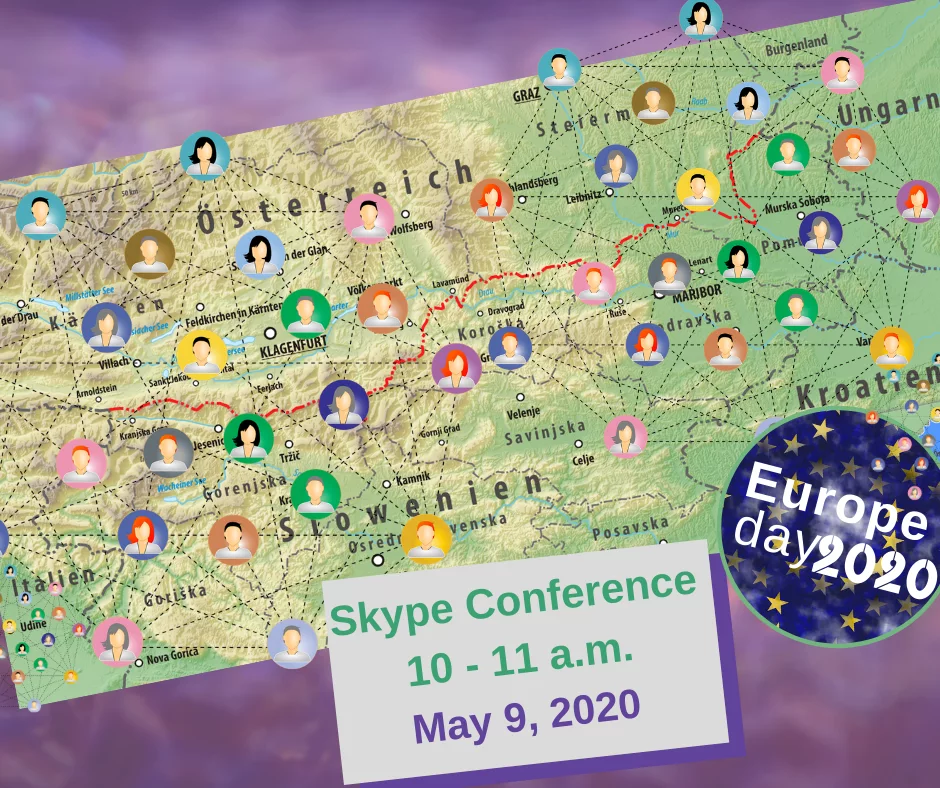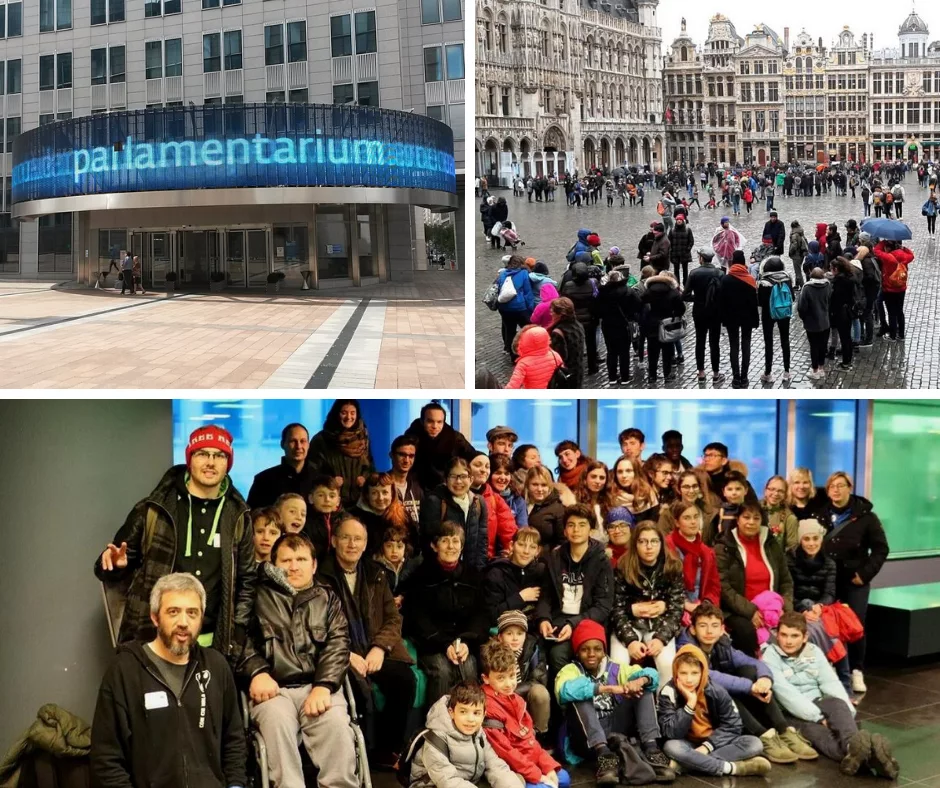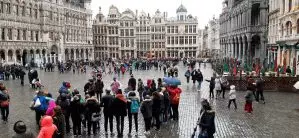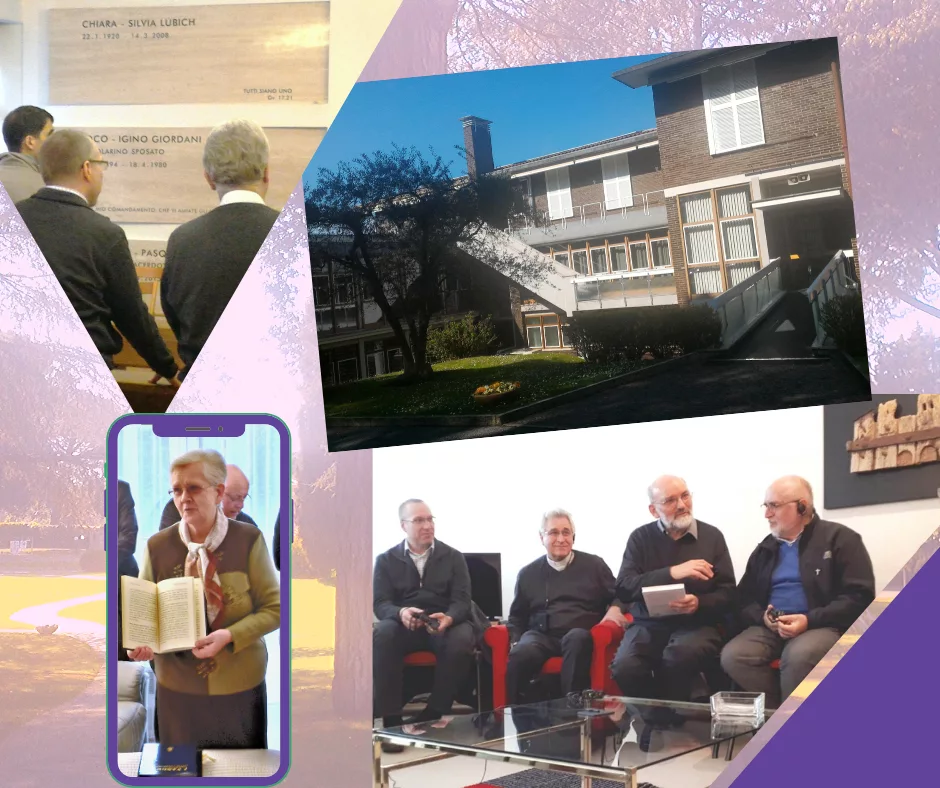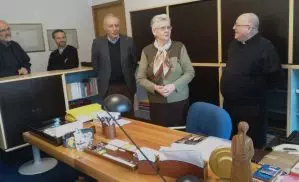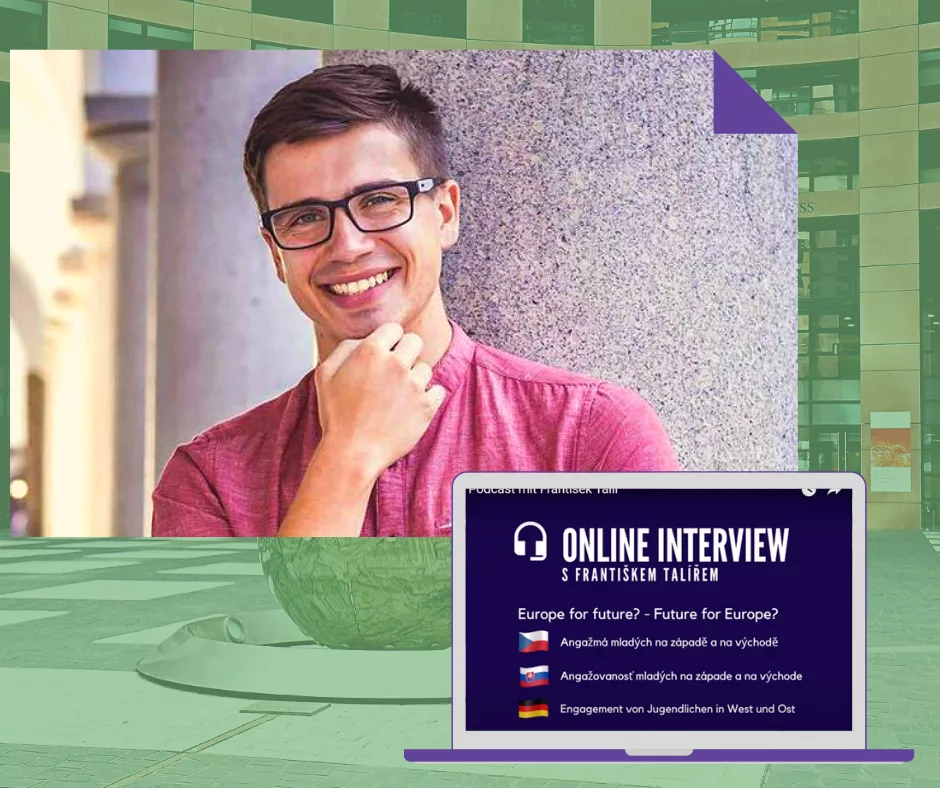
by Beatriz Lauenroth | May 1, 2020 | Experiences, reflections and interviews, News
Europe for the future – Future for Europe. František Talíř is 27; when he speaks about democracy and reforms, his enthusiasm is contagious.
“Since 1989, we have experienced the freshness of democracy and freedom even in the Czech Republic and Slovakia. Joining the EU as well as travelling and working in other Countries bear witness to this. It must be borne in mind, nevertheless, that the Countries that used to form part of the Eastern Block have a different mentality and culture than that of the Western European ones. Co-habitation is still marked by tensions, and, now, Covid-19 has shown that our privileges are not that evident”.
František is a historian and much involved in politics. At the last elections, his party chose him as a candidate for the European Parliament in Brussels, and in the next regional elections he will be the main candidate for the Christian Democratic Union of Slovakia.
“Above all, we young people ought to be interested in what happens in Europe and in the world, and then take initiatives, for example, to vote or to be active in a political party. It’s not democracy that needs to be changed, but the persons who shape democracy”. According to František, the journey is a long one; however, what is important is to start with one’s self, and not try unloading one’s responsibility on others. “I do not subscribe to all that Fridays for Future entails. Nevertheless, the young people succeeded to highlight a problem and to elicit a reaction from persons of all generations”.
František Talíř invites all persons to be aware of their roots in order to give a future to Europe. “I’ve read what the Father Founders of Europe wrote. Adenauer, De Gasperi and Schuman faced by far greater difficulties following the Second World War than the ones we are facing today. And yet, together, they did great things”.
Beatriz Lauenroth
František Talíř took part in the meeting of ‘Friends ofTogether for Europe’ that was held in Prague in 2018.
The entire interview of František Talíř with Maria Motykova is available (In Czech, Slovak and German) on: Podcast Europa per il futuro – Futuro per l’Europa
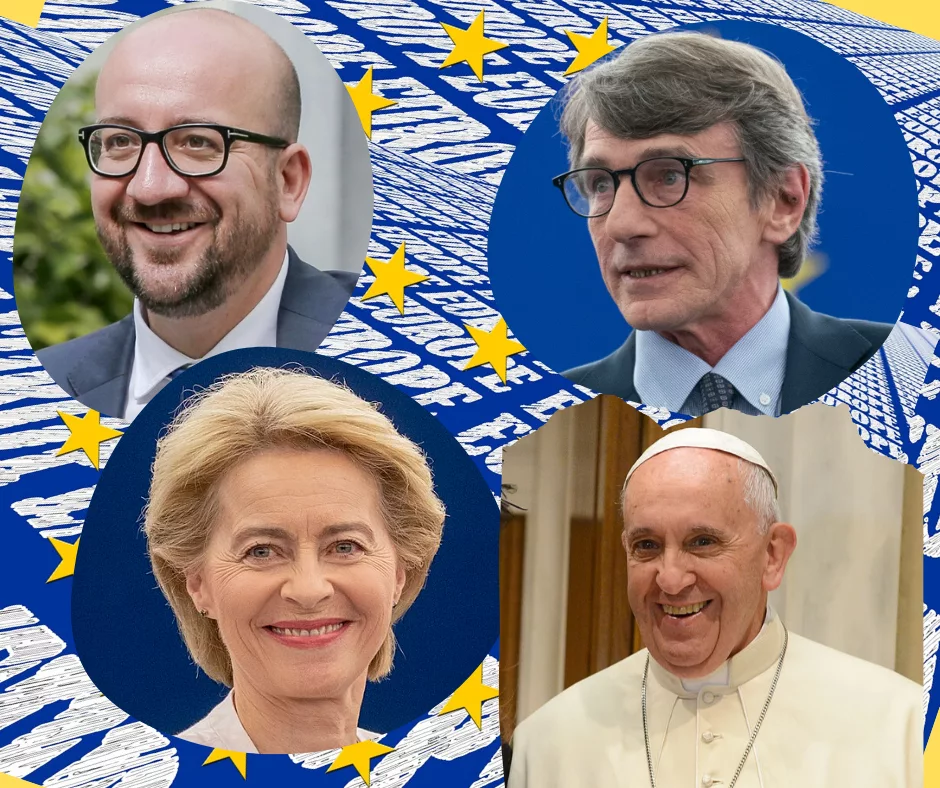
by Beatriz Lauenroth | Apr 13, 2020 | 2020 Europe Day, Experiences, reflections and interviews, News
Letters from Together for Europe to the E.U. and the Vatican
It is a crucial moment for Europe and the European Union, requiring concerted action. For this reason Together for Europe has written to the Presidents of the European Parliament, the European Commission and the European Council (David Sassoli, Ursula von der Leyen and Charles Michel) to thank them for their work, and to support them in their decisions in the fight against Covid-19.
To quote from the letter: “… at this time, we want to work and pray for the whole of Europe and for solidarity in Europe. We are convinced that Europe’s future – and that of the world – has be worked out together. Even now Europe can lead by example. And in the midst of the enormous challenges posed by the Covid-19 pandemic, we ask you not to forget the refugees and asylum seekers at the borders of the European Union. Please take timely measures to help and – as far as possible – welcome those people.”
Another letter has been sent to Pope Francis. On Easter Sunday, he specifically invited the world to face the pandemic together. The Steering Committee of Together for Europe assured the Holy Father of their support and commitment. “In particular, we feel challenged by your special appeal to the European Union to find a positive way forward in this epochal challenge, knowing full well that «not only its future, but that of the whole world could depend on it». Furthermore, “We firmly support your call and renew our commitment in many parts of Europe to give further proof of solidarity also by resorting to alternative solutions.”
Beatriz Lauenroth
Photo Von der Leyen / Sassoli: © European Union 2019 – Source: EP / CC BY /
Photo Michel: Belgian Federal Government http://premier.fgov.be/nl/biografie
Photo Pope Francis: http://www.korea.net/
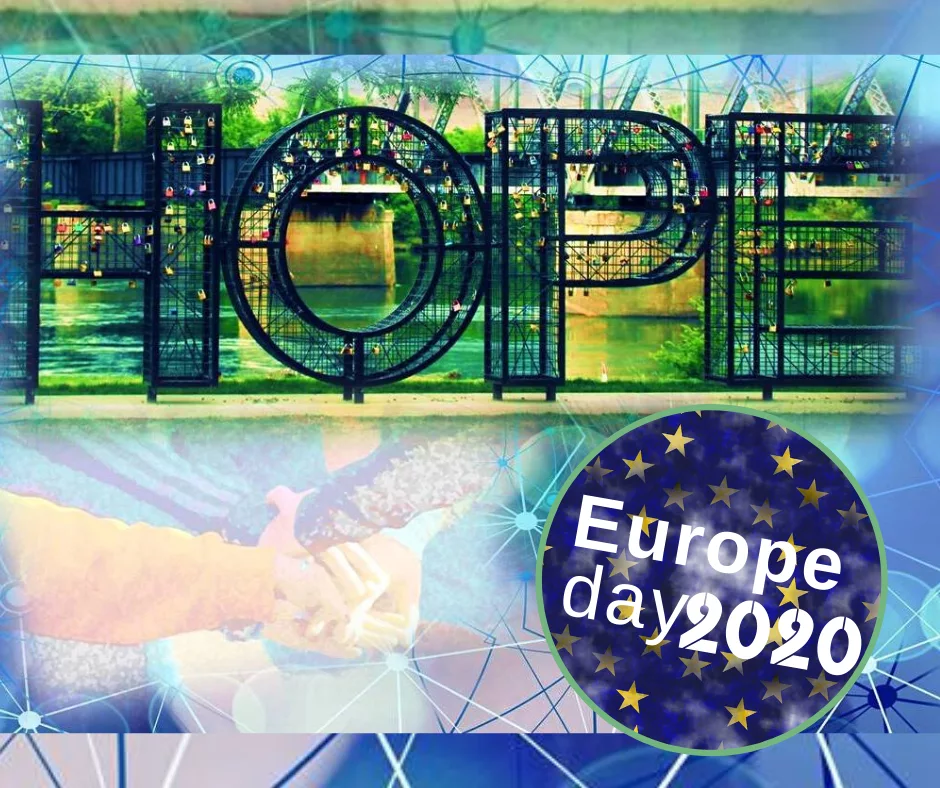
by TogetherforEurope | Apr 9, 2020 | 2020 Europe Day, News
Covid-19 is spreading with supersonic speed. And the end of the pandemic is nowhere to be seen. Families, workplaces, communities, churches and cities are passing through a difficult moment. Many are experiencing sufferings, uncertainties and isolation.
Be not afraid
The appeal to take an interior break has hit the mark. God has taken feasibility away from our hands. He is calling us to undergo a conversion, to do penance, fast and pray. On the other hand, in these last weeks we became more aware of the importance of cohesion and inter-personal relationships! As a result of the spreading of the coronavirus the world is experiencing a flow of life and creativity that bears an only message: Courage – I’m by your side – Be not afraid – Together we shall overcome!
Reacting
On March 28, Together for Europe started a prayer journey that intends moving us closer to God and to help us deepen our unanimous ‘I Believe’ with reference to Europe. Moreover, how can we use this special time to become more mature and more aware of the gifts that God donated to the Movements to be shared with the others? The Movements and the Communities were given their charism to be equipped to respond to society’s challenges in Europe and for Europe.
A ‘social’ Christian conscience
Back in 2004, in Stuttgart, Chiara Lubich’s words were quite encouraging: “Jesus underlined to the highest degree his commandment: ‘Love one another. As I have loved you, so you must love one another’ (Jn 13, 34). He called this commandment ‘new’ and ‘his’. This commandment of mutual love is not addressed only to individuals, but also to Movements, cities, regions and Countries. The present time demands that the disciples of Jesus acquire a ‘social’ Christian conscience. And, more than ever before, they are urgently called to love the others’ Country, or rather life, as their own”.
Moving online toward May 9
The Friends of Together for Europe are making the most of these extraordinary circumstances by keeping in touch online so that they may be able to journey together and to offer the fruits of their charisms to Europe. They are sharing info regarding events as well as lived-out experiences in their cities in preparation of May 9 (see for example the Graz/Austria event >>)
In this way, we will celebrate an ‘extended’ May 9, the Feast of Europe. It will be a way of staying together for Europe in a virtual network, but one that is incredibly real.
The International Secretariat of Together for Europe

by TogetherforEurope | Apr 3, 2020 | 2020 Europe Day, Austria, News
On February 27, we updated you about the intensive preparations being carried out by the local team of Together for Europe to mark the Europe Day with an international event in Graz (Austria). Although, due to the pandemic a Plan B is now needed, this did not prevent those persons to keep going ‘together’ to start preparing for 2021. And they will do so with a Skype Conference call on May 9.
This is what Theresia Fürpass, of the organizing team wrote to us:
“The idea behind the event to mark the Europe Day on May 9, 2020 – “Together for Europe – Meeting in Graz” – was to promote the encounter of Austrians, Italians, Slovenians, Croatians and Hungarians. Read more>>
We were planning to have an in-depth approach to the theme of dialogue; to exchange experiences resulting for the ‘7 Yeses’ of Together for Europe; to offer a guided tour of Graz, and to conclude the day with an ecumenical prayer meeting. The COVID-19 pandemic, however, has made all this impossible. Nonetheless, we still want to keep on journeying together seeing that a lot has been already done. Therefore, we are planning to hold this meeting in 2021.
An yet, it would be a great pity if we were to allow the Europe Day to pass without any sign of celebration! Thus, we invite all those who were planning to participate at “Together for Europe – Meeting in Graz” to join us for a Skype Conference all on May 9, from 10 to 11 a.m. Many have already confirmed their participation. Some of us will give an update regarding the present situation in their Country and we shall conclude by praying together the ‘Our Father’.
We are more than convinced that God will show us the way forward. So far, he has guided us in an impressive way, and has made it possible for us to achieve much more than we could have ever imagined”.
The Team of TfE in Austria
Contact: f.theresia@gmx.at
0043 3842 27 513
0043 664 73577 163

by Beatriz Lauenroth | Apr 2, 2020 | Experiences, reflections and interviews, News
23 February 2020: Intergenerational Day in Brussels. 51 European citizens – young and old – members of two diverse Communities, which are part of the network Together for Europe, share a “discovery tour” of significant places.
Agnès Grenier writes from Brussels:
“During the Ottmaring meeting that marked the 20th anniversary of Together for Europe, I came to know Pierpaolo of the Pope John XXIII Community. Pierpaolo has recently asked me to help organize a guided visit to our city for a group of 51 young and older persons from all Europe. Philippe and I, members of the Focolare Movement, immediately accepted to act as guides. In spite of the rainy and cold weather, we did our best to help our new friends discover some aspects of the European realities present in the Belgian Capital City.
For example, in the Parlamentarium we could follow the various stages of the integration of Europe; we also saw how the European Parliament functions and understood better the work that the MEPs carry out to face today’s challenges. We were all struck by the complexity of this structure and we understood how great and fundamental the intuition of the Founding Father of the European Union was to build new relationships of collaboration and trust between the various European Nations.
We then visited the Grande Place/Grote Markt, the historical City centre of Brussels. For many centuries it was the venue of political meetings, court sittings, cultural and religious festival, and even where capital punishments were carried out.
At the end of the day we felt enriched with so much history. Above all, however, we felt that the bonds that link the Focolare Movement and the Pope John XXIII Community have been strengthened: we felt as if we were one family. Together, we have enlivened a small expression of the European Union!”
Beatriz Lauenroth
-

-
Bruxelles 2020_1 ©Matteo Santini
-

-
Bruxelles 2020_2 ©Matteo Santini
-

-
Bruxelles 2020_3 ©Matteo Santini
-

-
Bruxelles 2020_4 ©Matteo Santini
-

-
Bruxelles 2020_4 ©Matteo Santini
Photo: ©Matteo Santini; Photo Planetarium: Wikipedia

by Diego Goller | Apr 1, 2020 | Experiences, reflections and interviews, News
Some time ago, before the covid-19 emergency, leaders of the Schönstatt Movement coming from seven European Countries have visited the International Centre of the Focolare Movement in Rocca di Papa, near Rome. They came from Austria, the Czech Republic, Germany, Great Britain, Italy, Spain and Switzerland. The group was accompanied by Fr Heinrich Walter, a former president of the General Presidium of Schönstatt and a member of the Steering Committee of Together for Europe.
The main objective of the visit was to “encounter Chiara Lubich”: they visited the places where she had lived and they also prayed at her tomb. Another objective was to hold a dialogue with some leaders at the Focolare Centre; one of these was Jesús Morán, the Co-president. They discussed the role of the Movements and their charisms in a context of ecclesial, political and cultural transformations in Europe. They also looked at the importance of the communion between the Movements, especially as part of the ecumenical network Together for Europe.
Both groups shared the view that the meeting and the dialogue were cordial, precious and fruitful. Obviously, this was yet another step forward in the long journey of communion and collaboration that Schönstatt and the Focolare have shared since Pentecost Eve of 1998 in St Peter’s Square, Rome, during the meeting for New Movements and Communities organized by John Paul II.
Diego Goller
-

-
Schoenstatt_Focolari_2019
-

-
Schoenstatt_Focolari_2019
-

-
Schoenstatt_Focolari_2019
-

-
Schoenstatt_Focolari_2019
-

-
Schoenstatt_Focolari_2019
-

-
Schoenstatt_Focolari_2019
-

-
Schoenstatt_Focolari_2019
-

-
Schoenstatt_Focolari_2019
-

-
Schoenstatt_Focolari_2019
-

-
Schoenstatt_Focolari_2019
«...10...1415161718...30...»




